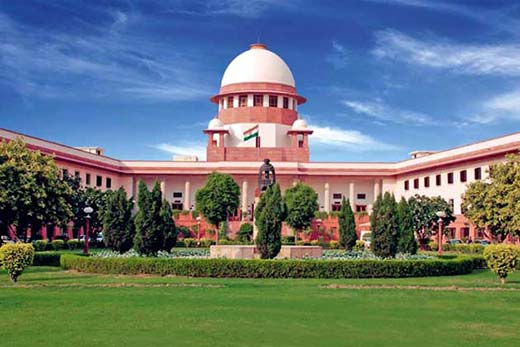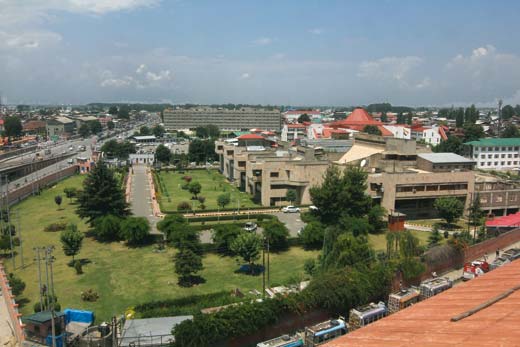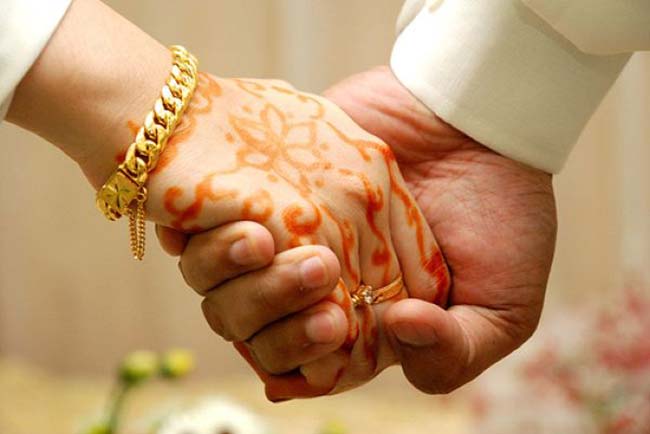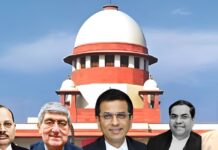The ‘beauty’ of the collapsed BJPDP regime was that the two parties agreed on issues in the Agenda of Alliance but took their disagreements to the court where one was petitioner and another was defender. With no government in place now, there are tensions over the key cases regarding the cases around state’s special status pending before various courts, reports Saima Bhat

As the government collapsed under its own weight, the apprehensions in Kashmir are growing about how the BJP will tackle the Vale. With governor and his advisers as the ultimate authorities in decision-making, there is no opposition and no whistle-blowers.
“Last time we were assured that they won’t fiddle with Articles 35-A and 370 but since the alliance break up we don’t know what is going to happen now,” NC leader and former lawmaker, Nasir Aslam Wani said. Since the BJP has historically remained against the special status to Jammu and Kashmir, Wani’s apprehension is that the remote rule may get some kind of dent.
“It can be their electoral compulsion for parliamentary elections because they have always talked on these lines.”
Most of the cases pertaining to the special status are pending before the Supreme Court and Delhi High Court. Some are scheduled for hearing in August. The Kashmir parties were vocal against the BJPDP government for putting a weak defence and now there is no political government and it is adding to the scare.
The first writ petition was filed by a RSS backed NGO We the Citizens in 2014. It has challenged Article 35 A. This article protects certain existing laws in force in the state of Jammu and Kashmir with respect to definition of permanent residents of the state. And it gives special rights and privileges in respect of the employment, property rights, settlement in state and right of scholarships to the permanent residents only.
The state has already filed the reply in this particular case.
Dr Charu Wali Khanna vs Union of India is another case in which the petitioner has challenged Article 370 and Article 35-A on the grounds of gender discrimination. Claiming to be a descendent of a permanent state resident, she has insisted that because of Article-35 and its section 6, she cannot be declared as a permanent resident. She has married a non resident so she has challenged these two provisions. She has taken additional ground with regard to the property rights of a female.
The third case Kali Dass and others vs Union of India has challenged Article 35-A on the grounds that West Pakistan Refugees and Safai Karamcharis are being discriminated in the matter of employment and owning of property in Jammu and Kashmir.
In fourth case the West Pakistan Refugees Action Committee vs Union of India has also challenged Article 370. The case by Gourav Ram pertains to reservation in promotion is also pending before the Supreme Court. This petition is titled as Mohammad Hanief Lone and others vs state and others.
Radhika Gill vs Union of India is the fifth case which has various petitioners. Radhika is a descendant of sweepers, who were brought from Punjab to Jammu in late 1950s when the sweepers of Jammu municipality had gone on indefinite strike. Around 200 odd sweepers were brought to Jammu then.
Radhika is the third generation of this sweeper community and she claims they too should be declared as the permanent residents of State. She has challenged Article 35-A and section 6. Besides the petitioners have challenged various provisions of BOPEE act which debars a candidate, not a permanent resident, from appearing in the examination. The petitioners have also challenged the laws of service commission which debars their appointment within the state.
In view of sensitivity attached to the cases, the Jammu and Kashmir government hired senior advocates including FS Nariman, Shekher Naphade, K Vishwanathan and Rakesh Dwivedi. Officials said they were appointed to defend these cases because they are experts relating to constitutional matters. In the last hearing on May 14, 2018, the three judge bench of the Supreme Court listed the case for next hearing on August 6 and observed the ‘pleadings from all angles shall be completed in the meantime.’
The brief reply to the maintainability of the petition has already been filed through FS Nariman, however, reply to the connected petitions has not been filed yet, which as per order of the court has to be filed before the next date of the hearing, officials associated with the case said.
In all these cases, initially the notices were not issued except for the We the Citizens and the Radhika Gill case. But on the last hearing in Supreme Court, the lawyers of opposite party were directed to file the reply, specifically dealing with all these contentions raised in petitions. “That reply has not been filed till date.”
But advocate Jahangir Iqbal, who resigned as state’s Advocate General after the fall of the BJPDP government, is of the opinion that in Delhi High Court, a case by Surjeet Singh has challenged pros to Article 368, that empowers the Parliament to amend Constitution by way of addition, variation or repeal of any provision according to the procedure laid down therein, which is different from the procedure for ordinary legislation. But, he says it cannot be made applicable in the state of Jammu and Kashmir until and unless the procedure is followed in the article 370.
“This is an important matter,” Jehangir said. “If it goes every amendment made by the parliament is going to impact the state of Jammu and Kashmir.” The case in pending in Delhi High Court and is listed on August 7.

Jahangir says till now they had argued that Delhi Court has no jurisdiction on the doctrine of forum convenience, which means they cannot choose a forum as per their convenience even if there is a cause. The petitioner should have filed the writ petition in the State. This article concerns essentially to the state of Jammu and Kashmir, so he had a right of invoking the writ in the State. Then second ground on which the State had argued was that this matter is already settled, whatever contentions he has taken in the petition are settled by two Supreme Court judgments: Sampat Prakash and Puran Lal, where Supreme Court’s full bench has upheld the significance of Article 35-A. More recently, the judgment on SARFESI Act also held that Article 370 is a permanent article and upheld Article 35-A.
“These Supreme Court judgments can run against these pleas and for any change in Article 35-A, the President of India does not have any powers to add in the constitution then that means all the amendments made after 1952 by implementing central laws and Presidential order are null and void,” says a senior lawyer.
There is an argument that the President has no powers to amend the Constitution. Quoting Justice Adarsh Sein Anand on Article 35-A, the lawyer reads from the book: “Article 35-A is not a part of the Constitution of India. It’s a part of the Constitution only applicable to J&K.” So the lawyer says there was no requirement of Parliament amending it. The Parliament can only add to the Article 370. “In Article 370, the President has been given powers to amend, alter or modify any article viz-a-viz J&K, with exceptions and modifications.”
Referring to 1954’s Presidential Order on Article 35(A), which grants special rights to citizens of J&K over property, jobs, the Article related to fundamental rights was in “desirable” and “not essential list,” he says.
Quoting the Parliamentary debates, the lawyer said: “The Constituent Assembly of J&K has been of the opinion to have own Articles over fundamental rights. However, after the Delhi agreement of 1952, under Clause 6, the Centre appreciated the need to have special rights for J&K. Then Prime Minister Jawaharlal Nehru issued a statement in Parliament over deliberations held between the State and Centre over special rights. Nehru recognised two issues in Parliament — one regarding the citizenship and special rights, while making reference to the special rights then existing since 1927 of Maharaja Hari Singh’s J&K. Thus, the issue of special rights was put before Parliament and debated and accepted there.”
In the follow-up of Parliament debates of 1954, the Jammu and Kashmir Assembly formed two committees, one on basic constitutional structure and another on fundamental rights.
“Subsequently, the Constituent Assembly adopted a resolution on Article 35 (A). The annexure was sent to the Centre for concurrence and not for any approval from the President. In fact, all presidential orders require concurrence of State Assembly equally,” he added.
In another case in the Supreme Court Vijay Laxmi Jha has challenged Article 370 directly. But this petition was dismissed by the Delhi High Court and the decision was given in favour of the state. But then Jha filed the petition again and it is also listed in August.
Besides these cases there is a pending case related to Resettlement Act that is pending for decades. “It had gone as an advisory to the President but the President has sent the matter to Supreme Court for advice and they finally refused to give him advice. Then it was referred to the normal court to be decided upon,” says advocate Nisar Ahmad. The last hearing in the case was in August 2017, when the Court observed that after hearing the parties, if it should be heard by two bench judges or a Constitutional bench. And since then this matter has not been listed in the Court.
But Jahangir is of the opinion that, “Despite hardcore approach these cases must be contested religiously. They are not important for the Kashmir region only but for the whole state.”















